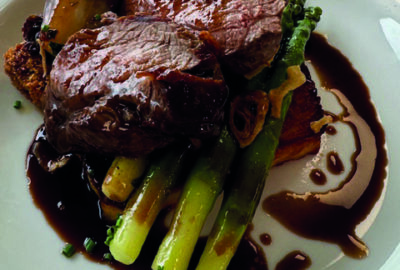By Philip Rees-Jones
University caterers are constantly having to adapt to cater for the changing needs of students during COVID-19.
We asked Philip Rees-Jones, the recently appointed chairman of The University Caterers’ Association (TUCO), for his advice
on how caterers can cope during the pandemic. Philip is also Deputy Director of Estates and Campus Facilities at Cardiff University, Wales.
Keeping up-to-date with rules relating to COVID-19 and remaining abreast of legislation is vital, Philip says. “In tandem we need to be supporting students where we can with their nutritional needs in what are undoubtedly challenging circumstances. In addition, ensuring that students with allergies are catered for and not overlooked when it comes to putting meal packs together,” he says.
There has been a huge decline in footfall in campus food outlets, so many universities have responded by introducing new service offerings such as delivery and takeaway “as well as embracing technology to make purchase simple and easier,” he adds.
Philip expects ‘click and collect’ and takeaway schemes will continue to grow in the coming year “as well as demand for plant-based food”.
For students in quarantine, Philip has seen examples where caterers have provided food packs. “There have been some teething issues, given the complexity of the situation,” he says, “but I know caterers are keen to do what they can and there are some cases where universities have swallowed the cost.” He adds that TUCO supplier partners have stepped up to offer free products “which has helped the situation”.
TUCO offers a procurement arm which has been invaluable during COVID-19. “Its frameworks have helped Cardiff University save
around 40%,” says Philip. TUCO’s service offers an efficient buying process, with a full-time team dedicated to cutting costs, with access to 200 suppliers.
Sharing issues and experiences is even more crucial during COVID-19 and this is where the TUCO forum (accessed through the web site) has come into its own. “Sharing is one of TUCO’s core values,” Philip points out, “to promote collaborative growth and a culture of best practice.” Members openly share questions and answers, while live case studies and issues are discussed and solutions shared.
Discussions are separated into sections such as “Procurement” and “Sustainability” so it’s easy to find a specific topic. Philip says “Remaining informed is key and the TUCO Forum provides a wealth of information and offers plenty of support for caterers.”
Box out:
Education and training is another area where TUCO helps its members. Philip recommends that members should utilise the training that TUCO provides to “upskill and build resilience for the future.”
A series of weekly webinars, each covering a different topic, have been introduced to help businesses during COVID-19. These cover a variety of topics such as leadership skills, food safety, veganism, change management, mental health first aid and social media. “Themes such as legislation, food techniques, food trends and managerial training are popular,” adds Philip.
To help members’ professional development, the e-learning library (courtesy of TUCO’s partnership with Upskill People)
is available, offering a series of online courses on a diverse range of subjects from alcohol sales to banqueting service.
Virtual round table discussions under the heading of “The New Normal” have also proved popular. Chaired by Philip, a panel of experts discuss issues, concerns and planned actions regarding working practices in a COVID-19 world. Recordings
of the sessions are available for members to access.
To find more information about TUCO and the services they offer visit https://www.tuco.ac.uk/



